I wish I could say that my 3 hours at church was my favorite part of Sunday, but if I did, I would have to repent later.
My Sunday afternoon refuge is spent perusing the
NY Times Book Review magazine for new releases, new paperbacks or anything else that looks interesting to add to my Goodreads list. I will NEVER in my lifetime read all the titles I have on my list, but I like to keep track of things I’ve read about or have been recommended to me, because more than likely, I will remember them next time I’m at the used book store or at the library. My other source for reviews is
Book Page, which is the best book review publication I read and it’s FREE (from my public library)!!
They may or may not be added to my list, but here are a few reviews that caught my attention the past two weeks:
From the Aug 2nd NY Times Book ReviewExiles in the Garden, by Ward Just (in a previous life, I worked on Capitol Hill, so this sounds intriguing):
From Publishers Weekly
Starred Review. Few if any novelists have captured Washington politics with the astute insights of Just, who here casts his dispassionate eye on a man who comes to question whether one can achieve a well-lived life on the outskirts of political action. Born and bred to the political arena, Alec Malone, son of a powerhouse U.S. senator, becomes an outsider twice removed, first by choosing photography as his profession and then by turning down an assignment in Vietnam. Content with his wife Lucia, the daughter of a Czech refugee, Alec dislikes the neighborhood cocktail parties, where a cosmopolitan mix of émigrés and exiles makes Lucia aware of the cultural chasm running through her marriage. Alec is devastated when she leaves him and bemused when, much later, his daughter follows in Senator Malone's footsteps, though it's the sudden appearance of Lucia's long-lost father that provokes Alec to question the meaning of an existence that has avoided the barricades. Just writes with confidence and authority as he works through larger themes of politics, history, war and historical judgment. This intellectually rigorous narrative is absorbing, timely and very Washington. (July)
Dancing to the Precipice: The Life of Lucie de la Tour du Pin, Eyewitness to an Era by Caroline Moorehead (Oooohhh…French Revolution and French Nobility – right up my alley – but at almost 500pps, not sure about this one):
Product Description
Her canvases were the court of Louis XVI and Marie Antoinette; the Great Terror; America at the time of Washington and Jefferson; Paris under the Directoire and then under Napoleon; Regency London; the battle of Waterloo; and, for the last years of her life, the Italian ducal courts. Like Saint-Simon at Versailles, Samuel Pepys during the Great Fire of London, or the Goncourt brothers in nineteenth-century France, Lucie Dillon?a daughter of French and British nobility known in France by her married name, Lucie de la Tour du Pin?was the chronicler of her age. La Rochefoucauld called her "a cultural jewel." The Sultan of the Ottoman Empire favored her for his dinner companion in Paris. Napoleon requested she attend Josephine. Her friends included Talleyrand, Madame de Sta?l, Chateaubriand, Lafayette, and the Duke of Wellington, with whom she played as a child. She witnessed firsthand the demise of the French monarchy, the wave of Revolution and the Reign of Terror, and the precipitous rise and fall of Napoleon. She spent two years as an ?migr? in the newly independent United States (on a farm in Albany) but was also a familiar of Regency London. A shrewd, determined woman in a turbulent age of men, Lucie de la Tour du Pin watched, listened, reflected?and wrote it all down, mixing politics and court intrigue, social observation and the realities of everyday existence, to offer a fascinating chronicle of her era. In this compelling biography, Caroline Moorehead illuminates the extraordinary life and remarkable achievements of this strong, witty, elegant, opinionated, and dynamic woman who survived personal tragedy, including the loss of six children, and periods of extreme danger, exile, poverty, and illness. Meticulously researched, brilliantly written, and vastly entertaining, Moorehead's chronicle of Lucie's life is an incomparable social history of her times.
We've Always Had Paris...and Provence: A Scrapbook of Our Life in France (Paperback)by Patricia Wells (because I’m a closet Francophile):
With charm and insightful anecdotes about the Parisian and Provençal food-driven life, cookbook author Wells and her husband, Walter, artfully recreate their quarter-century–long courtship with flavorful France. Their two distinct voices—complemented by black-and-white photos and more than 30 simple recipes for couscous salad, salmon tartare, and scrambled eggs with truffles—detail the couple's forays into going native. As they endeavor to adapt to the fashions and lifestyle of the French capital, Patricia takes on the task of researching a city's worth of tastes, textures and smells, visiting tea salons, pastry shops, boulangeries and chocolate makers for her Food Lover's Guide to Paris, while Walter settles into a new position as editor at the International Herald Tribune. Their Parisian interlude soon turns into a permanent French sojourn when they are seduced by the parasol pines and terraced vineyard belonging to an 18th-century farmhouse called Chanteduc. With their purchase of this northern Provençal abode, the remains of urban life fall to the wayside. This thoroughly enjoyable narrative describes the lavish, flavorful rewards of a life spent abroad. (May)
From the Aug 9th NY Times Book ReviewThe Wilderness Warrior: Theodore Roosevelt and the Crusade for America (Hardcover) by Douglas Brinkley (I will probably NEVER read this because at over 900pps, it’s a tad over my pay grade…but it still looks VERY interesting):
Amazon.com Review
Amazon Best of the Month, August 2009: "The movement for the conversation of wild life and the larger movement for the conservation of all our natural resources are essentially democratic in spirit, purpose, and method." So wrote Theodore Roosevelt, known as the "naturalist President" for his efforts in protecting wildlife and wilderness, merging preservation and patriotism into a quintessential American ideal. The Wilderness Warrior, Douglas Brinkley's massive(ly readable) new biography, intrepidly explores the wilderness of influences (Audubon and Darwin), personal relationships (Muir and Pinchot), and frontier adventures (too many to mention) that shaped Roosevelt's proto-green views. Topping 800 pages (ironically, one wonders how many trees fell for the first printing), The Wilderness Warrior makes an excellent companion to Timothy Egan's The Big Burn and Ken Burns's The National Parks: America's Best Idea.
Built of Books: How Reading Defined the Life of Oscar Wilde by Thomas Wright (because it has an AWESOME COVER!):

“Entertaining and highly original, Oscar’s Books is animated by a real intellectual passion. It should be read by anyone interested in Wilde or in the art of literary biography.”
— Peter Ackroyd
Been Here a Thousand Years: A Novel (Hardcover)
by Venezia Mariolina (Author), Marina Harss (Translator) (Because in addition to being a closet Francophile, I’m also a closet Italian):
From Publishers Weekly
Venezia's tale traces five generations of the Falcone family, beginning with Don Francesco Falcone—a rich, powerful, feared and often unsympathetic man—and his mistress, farmworker Concetta, who bears him six daughters before delivering a much-longed-for son. The women form the rich backbone of the story as they strive to overcome their sometimes unbearable circumstances. Through Gioia, a fifth-generation Falcone, Venezia travels among each generation. Sickly as a child, Gioia finds comfort and fascination in the stories of her forebears, then becomes a voracious reader of everything from Dostoyevski to calendars. Her own love of storytelling paints a word-picture of each of the eras of the family as well as the history of Grottole, the Southern Italian town where the story is set. Venezia also neatly weaves an Italian history lesson throughout, from WWI to the excesses of the '80s. Sometimes heartbreaking, always beautiful, these women will stay with the reader long after the final page is turned. (June)
The World Before Her (Paperback)by Deborah Weisgall (more Italian “show me the love”)
From Publishers Weekly
Two women in Venice, separated by a century, search for love and identity in the latest from novelist (Still Point) and memoirist (A Joyful Noise) Weisgall. It opens as Marian Evans—aka Mary Ann Evans, aka the novelist George Eliot (1819–1880)—is on her 1880 honeymoon in Venice with Johnnie Cross, who is 20 years her junior. Evans is trying, after a long and scandalous love affair with fellow author George Lewes, to have a normal marriage. One hundred years later, in the same city, Caroline Spingold travels with her husband, Malcolm, on his business trip aimed at revitalizing the Venetian economy. Caroline is a sculptor with a childhood history in Venice, financially supported by Malcolm, who is 20 years her senior. Malcolm does not share many of Caroline's perceptions, and she grows increasingly weary of her stale marriage. Weisgall shares the stories of Marian and Caroline in alternating chapters, sensitively developing their similarities in artistic and sexual ambition. Both face the deaths of men from their pasts, making love to their memories while their current partners struggle to beautify their lives and aid them in their work. Weisgall's well-researched historical fiction is dense, romantic and provocative. (May)
From Book Page, August 2009A Long, Long Time Ago and Essentially True (Hardcover)by Brigid Pasulka (because I love WWII fiction)
Product Description
The novel opens on the eve of World War II. In the mountain village of Half-Village, a young man nicknamed the Pigeon, under the approving eyes of the entire village, courts the beautiful Anielica Hetmanska. But the war's arrival wreaks havoc in all their lives and delays their marriage for six long years. Nearly fifty years later, their granddaughter, Beata, leaves Half-Village for Krakow, the place where her grandparents lived as newlyweds after the war and the setting of her grandmother's most magical stories. Beata yearns to find her own place in this new city, one that is very different from her imagination and the past. Her first person insight into a country on the cusp of change--and the human toll of Poland's rapid-fire embrace of capitalism--transports readers to another world. When two unexpected events occur, one undeniably tragic, and the other a kind of miracle, Beata is given a fresh glimpse at her family's and her country's, history and a vision of her own essential role in the New Poland. With the effortless, accomplished grace of a gifted storyteller, Pasulka weaves together the two strands of her story, re-imagining half a century of Polish history through the legacy of one profound love affair--that of the Pigeon and Anielica--which readers won't soon forget.
The Calligrapher's Daughter: A Novel (Hardcover)by Eugenia Kim (just ‘cause)
From Publishers Weekly
Starred Review. This debut novel, inspired by the life of the author's Korean mother, is a beautiful, deliberate and satisfying story spanning 30 years of Korean history. The tradition-bound aristocratic calligrapher Han refuses to name his daughter because she is born just as the Japanese occupy Korea early in the 20th century. When Han finds a husband for Najin (nicknamed after her mother's birthplace) at 14, her mother objects and instead sends her to the court of the doomed royal Yi family to learn refinement. Najin goes to college and becomes a teacher, proving herself not only as a scholar but as a patriot and humanitarian. She returns home to marry, but her new husband goes without her to study in America when she is denied a visa. As the Japanese systematically obliterate ancient Korean culture and the political climate worsens, so do Najin's fortunes. Her family is reduced to poverty, their home is seized and Najin is imprisoned as a spy while WWII escalates. The author writes at a languorous pace, choosing not to sully her elegant pages with raw brutality, but the key to the story is Korea's monumental suffering at the hands of the Japanese. (Aug.)
Jam It, Pickle It, Cure It: And Other Cooking Projects (Hardcover)by Karen Solomon (because I need to learn these things!!)
Food and crafting enthusiasts look forward to the weekends to create, experiment, and stock the pantry with handcrafted edibles and gifts. For creative urban dwellers, the kitchen is a workshop space, and JAM IT, PICKLE IT, CURE IT is its how-to guide. This savvy collection of 75 recipes for creating homemade artisan foodstuffs features delicious projects easy enough to be completed in one to two days. Detailed instructions, prep-ahead tips, shopping lists, and optional extras outline the shortest route between crafty cooks and a pantry full of hand-labeled, better-than-store-bought creations.
(And as a side note: Why is Mommywood by Tori Spelling #10 on the NY Times Non Fiction best seller list?? Who on earth is buying it let alone reading it??)


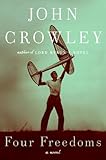
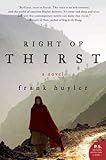
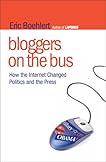
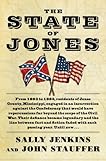





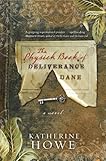 The Physick Book of Deliverance Dane by Katherine Howe
The Physick Book of Deliverance Dane by Katherine Howe